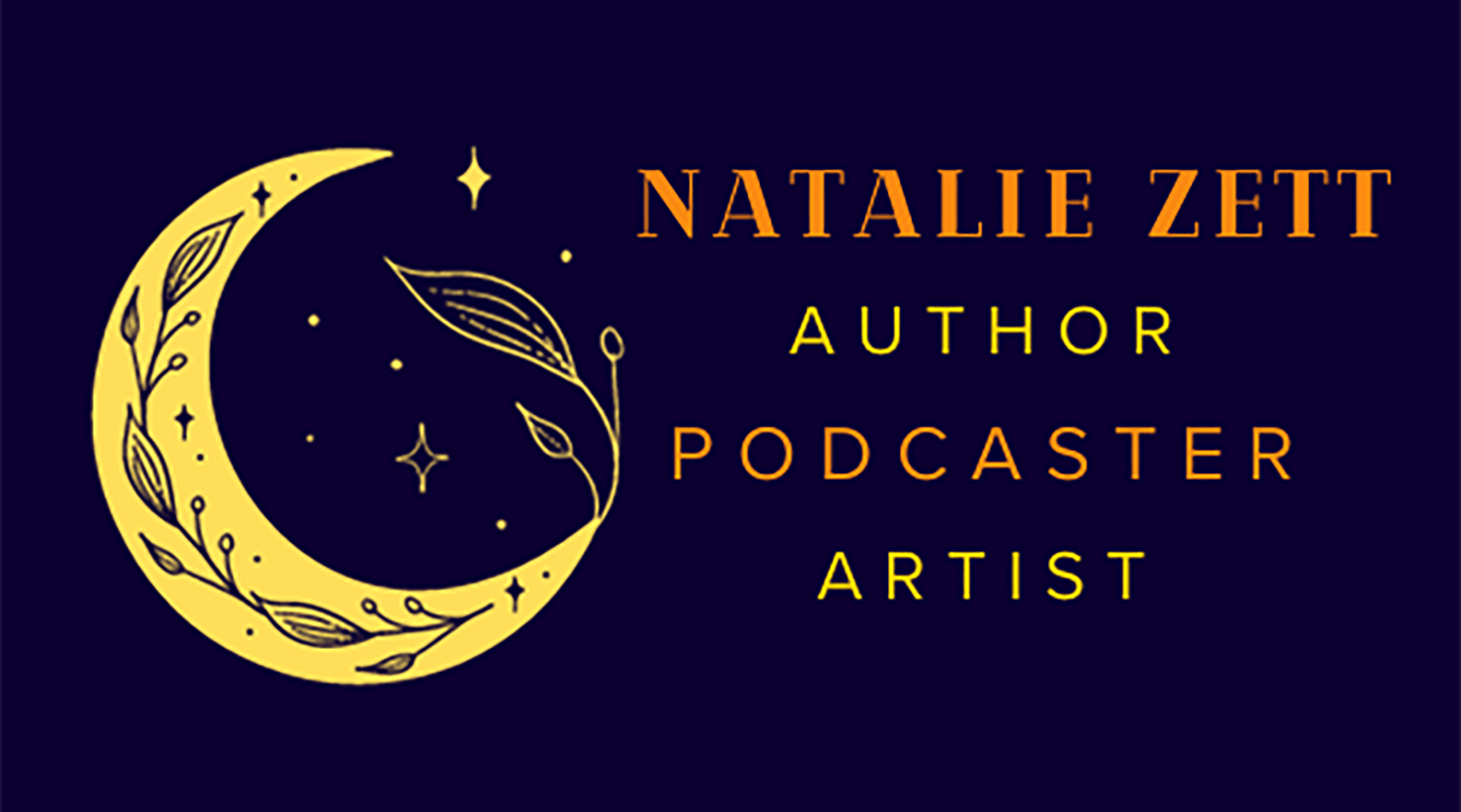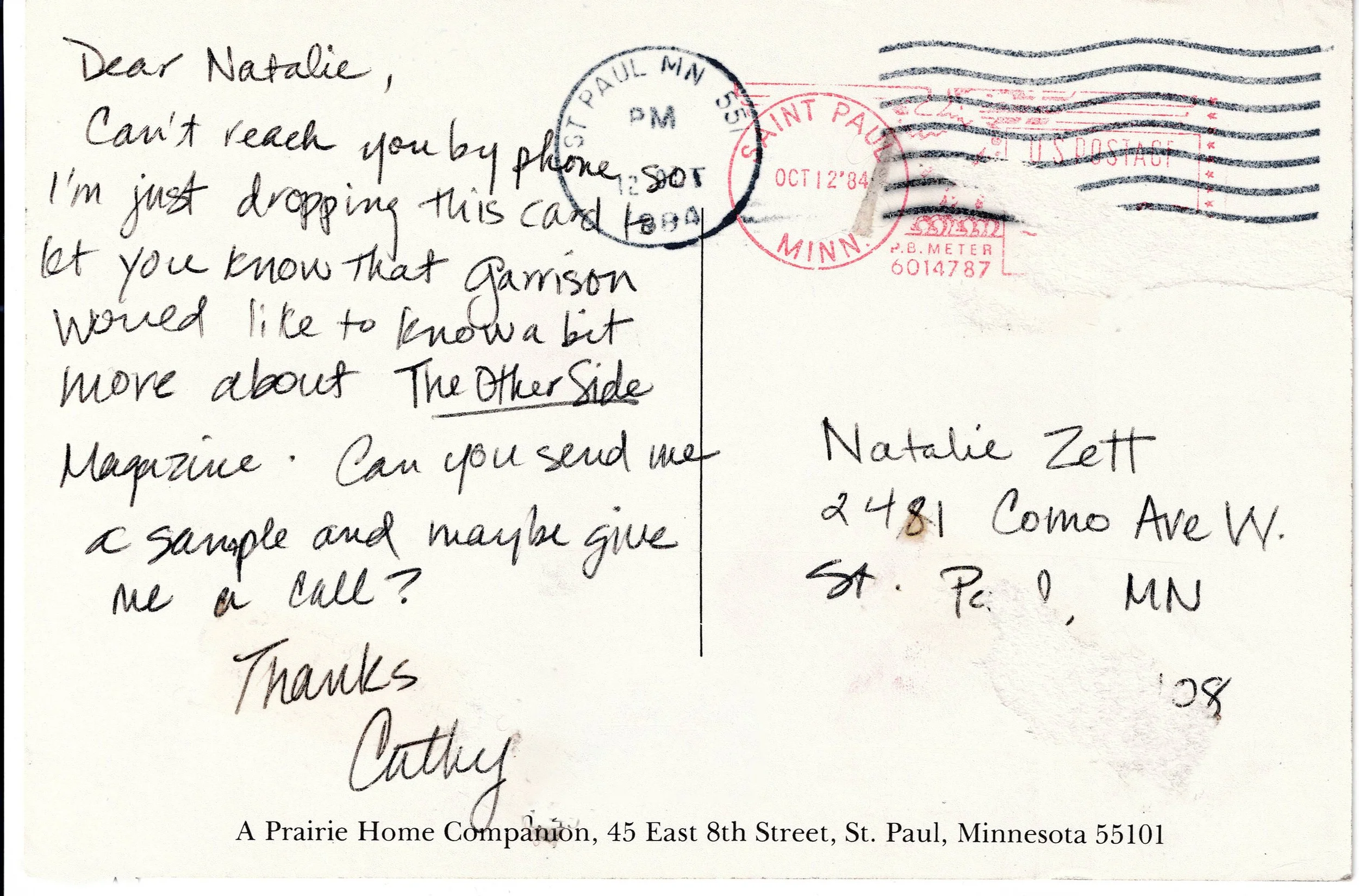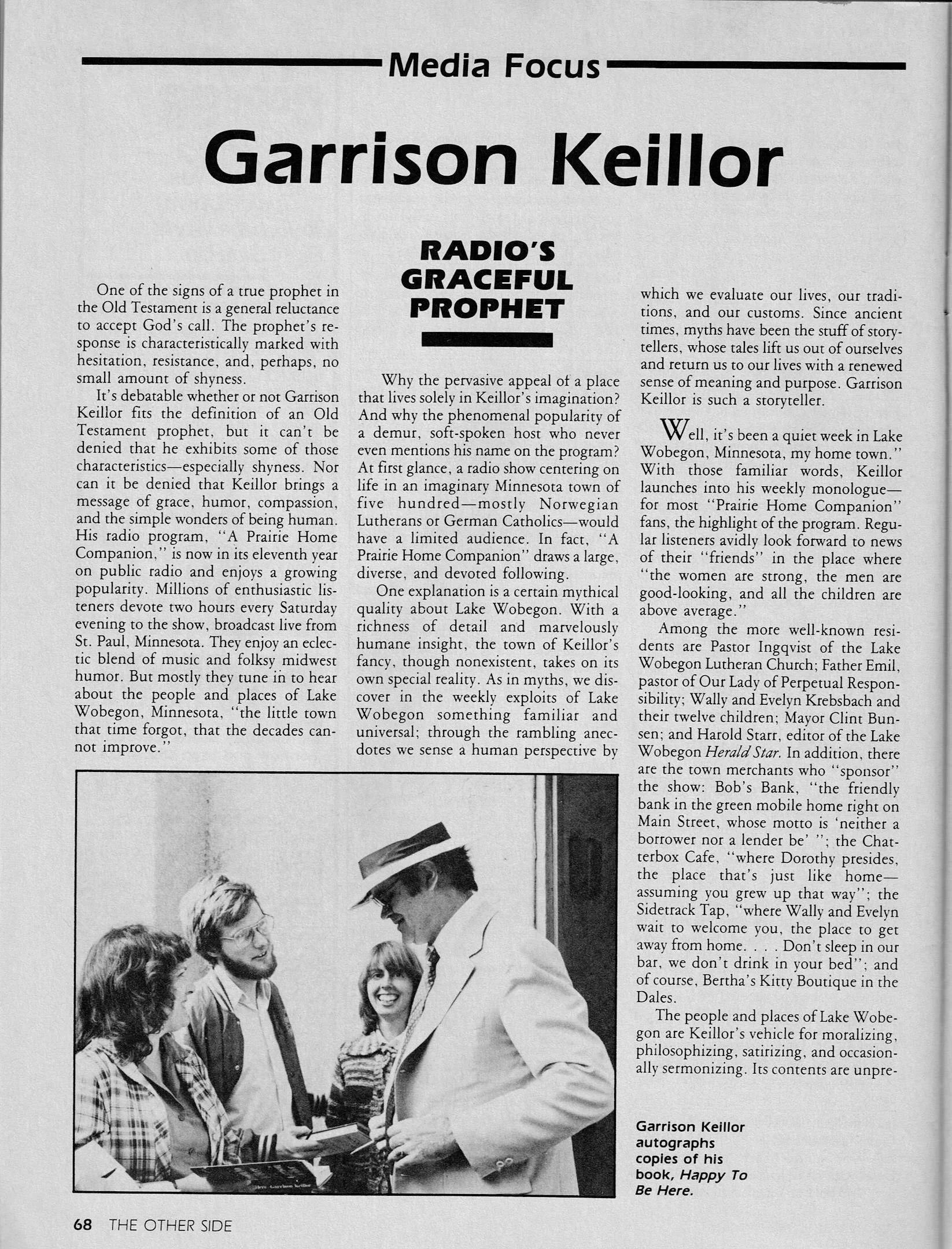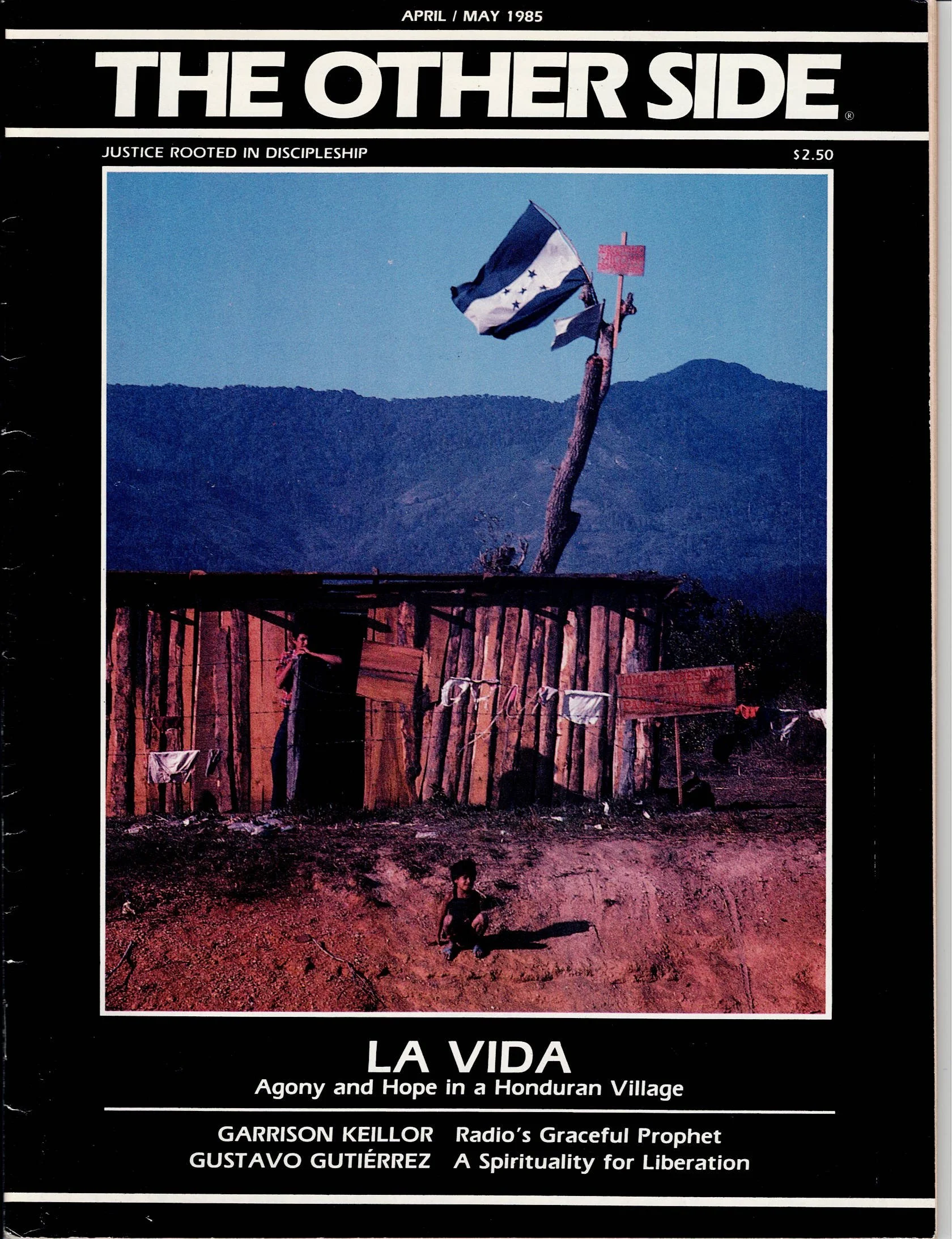My almost interview with Garrison Keillor
I can only tell a story if I tell the story behind the story. That could be a quirk, but that’s what I do.
In the early 1980s, I’d been freelancing for The OtherSide magazine (Philadelphia), and the editor suggested an idea. He knew I was moving to Minneapolis-Saint Paul, MN and wanted me to score an in-person interview with this guy who had some radio show called A Prairie Home Companion.
Discovering A Prairie Home Companion
I couldn’t get past the music the first time I listened to the show. I was into New Wave by then, with a splash of disco but A Prairie Home Companion featured nostalgic music that harkened to a bygone era. It reminded me of the recordings of my Dad’s Country and Western radio shows in the late 1940s and early 1950s. What in the heck was this?
So I waited for--or waded through this music--until the program host, Garrison Keillor, opened with, “It’s been a quiet week in Lake Wobegon...” And I was hooked. The combo of that voice and storytelling prowess captivated me.
I mean, he told stories of Lutherans, for godssake!! Who does that? Lutherans!! My Mom’s people. The religion that I was forced into when I was a kid. (I stayed with it for years because of the earnest and loving people I’d met along the way.) Even now, the iconic image of shredded carrots suspended in lime green gelatin dessert brings a tear to my eye, evoking nostalgic memories of church basement potluck dinners.
Interview Quest
Soon after arriving in the Twin Cities, I began trying to contact Keillor via Minnesota Public Radio, where he worked.
I knew he was heading for superstardom and wanted to snag that interview before that happened. I badgered his publicist, and she responded with a multipage form. I completed it. Then she asked for more information (please see Powdermilk Biscuits Postcard images).
Powdermilk Biscuits postcard side 1. Official communication from Minnesota Public Radio to me in 1984.
Powdermilk Biscuits postcard side 2. Official communication from Minnesota Public Radio to me in 1984.
Of course I complied right away and sent copies of The OtherSide magazine with my various articles. I thought he will be interested in a Christian magazine that promoted social justice.
No response.
I had to get inventive as the article deadline approached with no interview on the horizon. I gathered one-of-a-kind recordings from Keillor’s various talks delivered in churches, including Luther Seminary, where I was a graduate student. Not ideal, but I put together a decent draft.
An Unexpected Phone Call
One of my student jobs was working as a writer and editor at the (then) American Lutheran Church headquarters in Minneapolis. One night, when I was working late, my office phone rang (this was before mobile phones).
I answered, and that now familiar sonorous voice said, “Hello. May I speak to Natalie Zett.”
“Oh, My God! It’s YOU!!!” I screamed.
That radio voice was now on the other end of my phone line! I quickly untied my tongue and began talking with him. I don’t remember the details, but I recall relaxing and laughing with him while cajoling him into meeting me for an interview.
“Nope,” he said, “You have more important things to deal with in your magazine than me. But I wish you a lot of luck.”
I cobbled together an article without an actual interview. Improvise. Adapt. Overcome could also be the motto of a freelance journalist or any kind of creative for that matter.
A Writing Career is Born
Garrison Keillor: Radio’s Graceful Prophet was published in the April/May 1985 issue of The OtherSide magazine. That piece helped this fledgling writer take flight. From then on, if I wanted to freelance for a paper or magazine, all I had to do was send a letter and the Keillor article to the editor and I was usually good.
It was my dream to work as a writer. Although I never made enough to survive on writing alone, the extra income gave me joy and kept the wolf away from my doorstep.
It’s important to acknowledge that this encounter occurred long before the Radio’s Graceful Prophet fell from grace. I’m saddened by the subsequent stories that emerged. Still, even though one may stumble and fall from grace, the path remains open for reclaiming one's principles.
And I cherish the moment in 1984 when he reached out to a young and inexperienced writer, propelling me forward in my pursuit of a writing career. That phone call from Garrison Keillor served as a catalyst for my dreams to take flight.
Garrison Keillor: Radio’s Graceful Prophet by Natalie Zett. April/May 1985. The OtherSide magazine Page 1 of 4
Garrison Keillor: Radio’s Graceful Prophet by Natalie Zett. April/May 1985. The OtherSide magazine. Page 2 of 4
Garrison Keillor: Radio’s Graceful Prophet by Natalie Zett. April/May 1985. The OtherSide magazine. Page 3 of 4
Garrison Keillor: Radio’s Graceful Prophet by Natalie Zett. April/May 1985. The OtherSide magazine. Page 4 of 4
Cover of the April/May 1985 issue of The OtherSide magazine. Tagline: Justice Rooted in Discipleship







